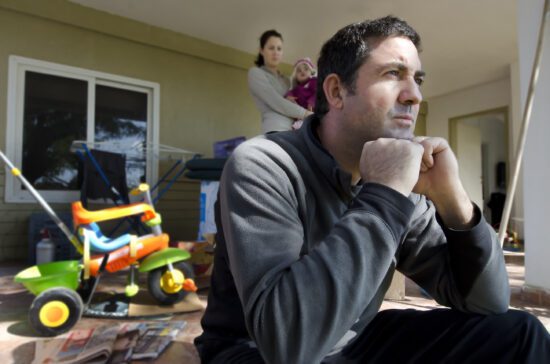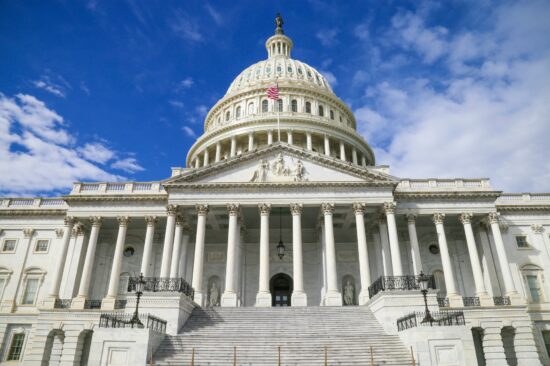“Together we can end human trafficking,” she said to a crowd of over 46,000 Christians in downtown Atlanta. As I sat in the nosebleed section of the arena, I found myself actually sitting in disbelief. I knew that I was supposed to immediately jump on board with a hearty “Amen. Let’s get to work!” But I had questions. You see, I’m not a lawyer or police officer. Nor am I Liam Neeson’s character, Bryan Mills, from the 2008 hit movie, Taken. With that said, it should be obvious to the reader that I do not possess a “particular set of skills.”
Rather, I am a pastor. I had sensed a calling to vocational Christian ministry and subsequently pursued a theological education. But as knowledgeable as my professors in seminary were, they could not prepare me for this moment. How could I, a Christian minister, fight human trafficking? For that matter, how could my church respond?
According to the Global Slavery Index, there are as many as 45.8 million people around the world held in what amounts to modern day slavery.[1] Cases have been reported in every country, as well as every state in the U.S. Whether the victimized are trafficked into the commercial sex industry, the agricultural sector or the hospitality and service industries, each person has one thing in common: they are vulnerable. Human trafficking can be defined as the exploitation of vulnerability for commercial gain. For this reason, human trafficking can happen anywhere because there are vulnerable people everywhere.
The God of the vulnerable
Vulnerability should not be a new idea for the Christian community. As a matter of fact, it is a key theme throughout both the Old and New Testament Scriptures. A cursory reading will reveal that God identifies not with the earthly elite, but with those who lack power, protection and social status.
God, by virtue of his character, desires to bring “justice” to those who are in need of it. This concept can be clearly seen as the word “justice” is found over 200 times in the Bible. Its Hebrew form, mishpat, can mean “to treat people equitably,” or “to give them what they are due. In the Old Testament, God is so clearly known by this love for justice that he is identified as the “God of Justice” (Isa. 30:18; 61:6; Mal. 2:17). One particular Hebrew writer goes as far as describing him as the “Father of the fatherless and protector of widows” (Psa. 68:5; Exod. 22:21-24; Lev. 23:22; Deut. 24:19, 26:12).
In the New Testament, the reader discovers that the ministry of both Jesus and the early church is marked by this distinct attribute. In his inaugural address, Jesus quotes Isaiah 61 explaining that he is the messiah that has come to “proclaim good news to the poor.” This “good news” was that Christ was bringing a new kingdom to bear; a kingdom where justice, not injustice, had the final word (Luke 4:18-20). With this in mind, James, the brother of Jesus, wrote to the early Christian church, explaining that the “religion that is pure and undefiled before God the Father is this: to visit orphans and widows in their affliction, and to keep oneself unstained from the world” (James 1:27). In other words, not only does God identify with marginalized people, but he challenges his followers to join him by living justly.
How to join God in the work of justice
In his seminal work, Experiencing God, author Henry Blackaby explains that for the Christian the key to discovering the will of God for one’s life is to “find where God is at work and to join him there.” However, the Scriptures testify that if we desire to find where God is at work, one need only to identify those who are most vulnerable to exploitation. In essence, the believer does not have to bring the God of Justice to those who are hurting because he has already arrived and is inviting us to participate. With that said, how can the local church join God in the work of justice?
We can join God in his work by recognizing and responding to the vulnerabilities in our communities.
First, we must recognize our own vulnerability. For many of us, we would rather run from our weaknesses than acknowledge them; however, it is our vulnerability that actually gives us the platform to serve other broken people. The recognition of our own frailty, though sobering, levels the “playing field,” so-to-speak. Whether we are standing in line at a soup kitchen on Saturday night or sitting in a pew on Sunday morning, we are all people in need of a Savior. For this reason, Jesus Christ, the Son of God, identified with each of us by being born into abject poverty to a subjugated people over 2,000 years ago. Christ willingly chose to save the vulnerable from death by becoming vulnerable to death. As we reflect on the dire nature of our situation, namely that our sinfulness required Christ to live, die, and rise in our place, we are compelled to serve others. In other words, as we become acquainted with our own vulnerability, we are better prepared to notice those in need around us.
With that in mind, we can join God in his work by recognizing and responding to the vulnerabilities in our communities. It is said that someone once asked Mother Teresa how she dealt with global poverty. Her answer seemed remarkably simplistic: "You do the thing that's in front of you."[2] The best way to discover who is most vulnerable in your community is to ask your community. Start by setting up appointments with local law enforcement, social service providers, NGOs, and even the vulnerable themselves. Ask each of them to share what they think are the greatest needs facing your community. The added benefit of this approach is that as you listen, you will also discover people and organizations with whom your church can collaborate to better serve your community.
Too often, when we hear about global injustices, like human trafficking, we are left feeling helpless and overwhelmed. We are also reminded, however, that we are not alone. As Christians, we have been invited to join the God of Justice as he brings a kingdom without exploitation. Together we can end human trafficking.
Originally published by Christian Legal Society in their magazine, The Christian Lawyer (Spring 2017).










